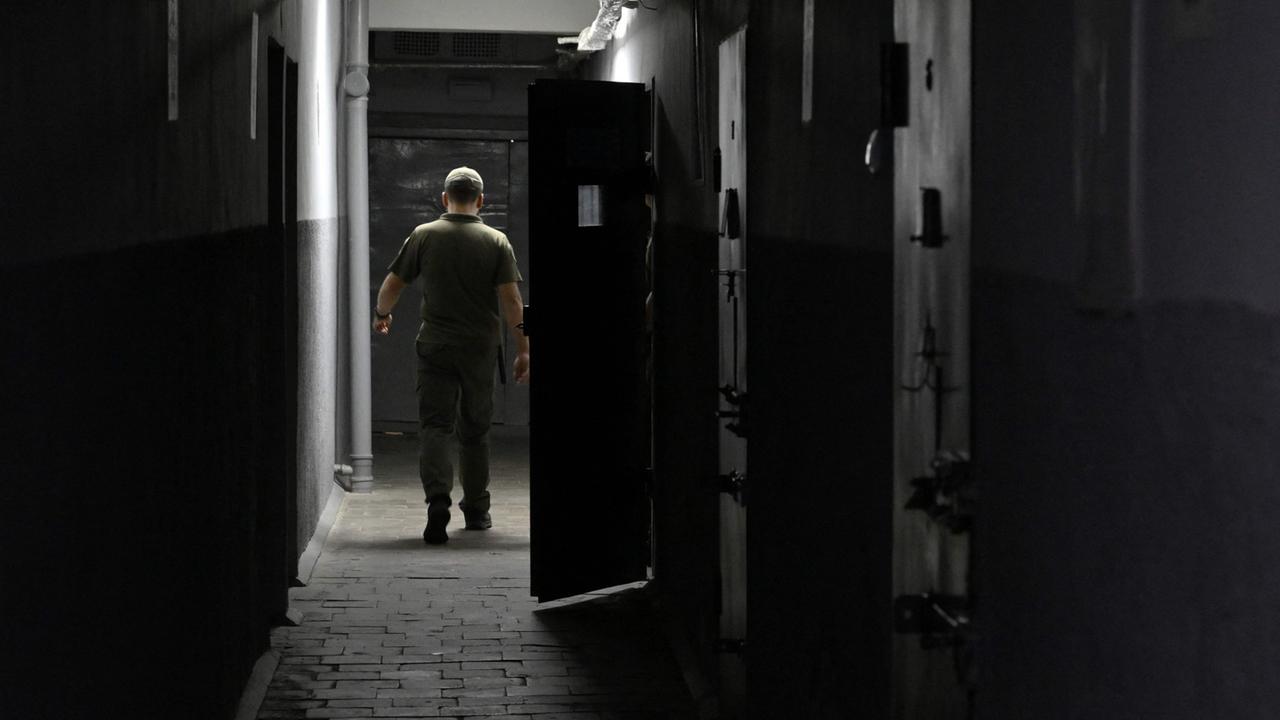report
During their offensive in Kursk, the Ukrainians took hundreds of Russians prisoner of war. These were often young conscripts who were not prepared for war. Encounters with men in a prison who only want one thing – to go home.
We are not allowed to film his face, says the guard. Nor are there any badges on the uniforms or signs in the prison that could give clues about the location. But the Ukrainian military wants to show the prisoners of war who are being held here to a group of journalists, says the deputy prison director. He is to remain anonymous for security reasons.
“There are a lot of young people here, between 18 and 21 years old. They are doing military service. In the first two or three days they were very scared. But after they understood that we were not going to harm them, that they were safe, they started to behave normally,” said the deputy prison director.
Of legal age, but hardly an adult
Since the beginning of the Ukrainian offensive in the Kursk region, more than 300 Russian prisoners of war have been registered in this prison alone. We follow the guard into the basement of the building. Here the cells are located behind heavy iron doors.
We are only allowed to film and record the men after they have given their consent. Not all of them want to talk to the media. They have been here for a week. The men are of legal age, but hardly adults.
Anton is 19 years old. His dark hair is cropped short. His checked shirt is a few sizes too big for his slim body. “We didn't want to take part in combat. That was a coincidence,” he says:
We weren't fighting, we were just standing at the border to protect our state. And then we got caught up in this offensive. That shouldn't have happened. We shouldn't have been there.
“We need to be replaced”
The air in the cell is stuffy. There are colorful plastic cups and plastic plates on a table. They get three meals a day, the men report. Garfield is playing on the muted television in the corner. More than a dozen prisoners of war are being held in this cell.
Dmitri is sitting on a hard iron bunk bed in the corner. “I hope we'll be exchanged,” he says, adding: “Actually, conscripts shouldn't be deployed at the border, but we were sent there anyway. We need to be exchanged. The Ukrainians want to go home and we want to go home too.”
The men who are willing to talk to us say they are being treated well. They are given medical care, clothing, hygiene products and are allowed to go outside once a day.
Only a few people here were injured in the Ukrainian offensive. Many apparently surrendered almost without a fight. The prison guards are present during our conversations. Red Cross employees are also checking the prison conditions, but do not want to speak to the media.
A means of pressure against Putin?
Anton describes the moment of his capture: “We all huddled together in a room – about 28 people. It was terrifying. And then we shouted: 'We are conscripts, don't shoot! We all surrender!'”
The young men were unprepared for a real war. Some were left behind by their commanders when the Ukrainian army attacked the Kursk region two weeks ago.
They could play an important role in the next prisoner exchange. Ukraine hopes that the mothers of the young men can now put pressure on Russian President Vladimir Putin.
“Of course they miss their families and friends,” says the deputy prison director, stressing: “They are safe here for now, they know that. They are waiting to be exchanged as soon as possible, but that does not depend on us.”
Prisoner exchanges are often the result of top secret and complex negotiations. According to Putin and the Russian General Staff, conscripts should not be sent to war against Ukraine. However, the Russian regime evidently did not expect that Ukraine would invade Russia. Countless photos of conscripts in captivity are circulating from the Kursk region.
Rebecca Barth, ARD Region Sumy, tagesschau, 21.08.2024 09:34 a.m.





